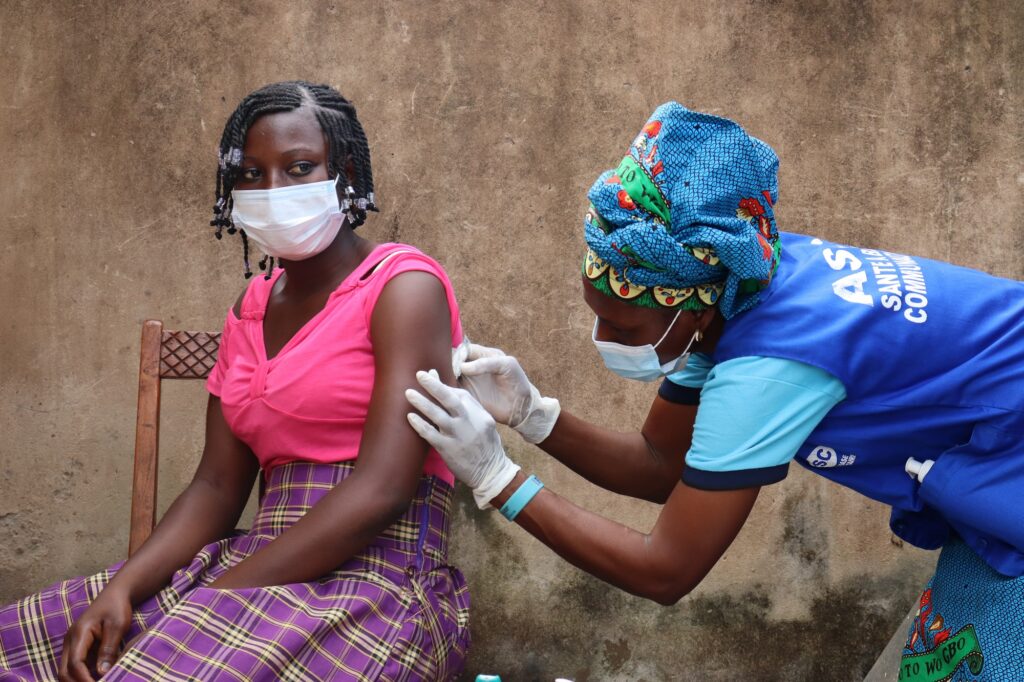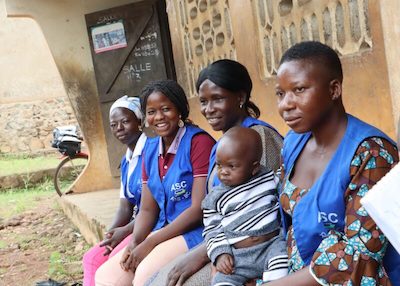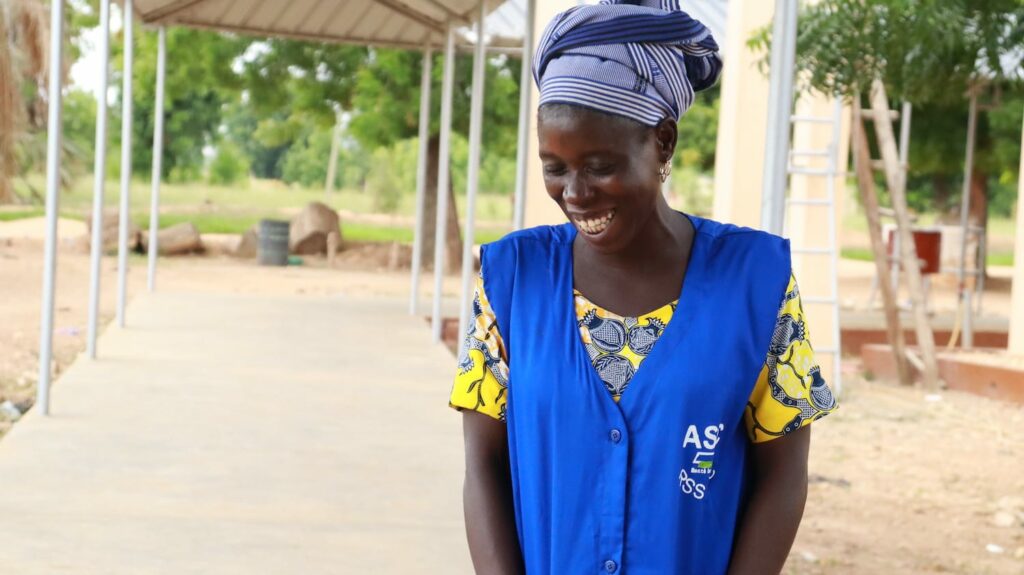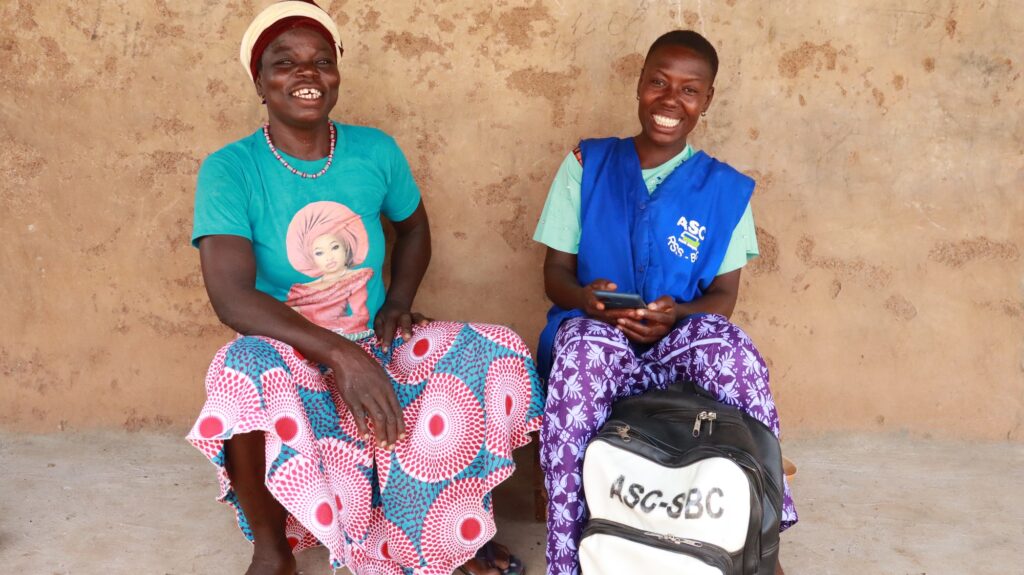As the world observes Universal Health Coverage (UHC) Day on December 12, we find ourselves amidst a landscape of both significant progress and daunting challenges in global health. Recent milestones include Kenya’s national commitment to expand professional community health worker programs, the Global Fund’s announcement to increase community health spending to $900M, and the pledge by Gavi, the Global Vaccine Alliance in June to support the integrated primary care approach by Integrate Health and the Ministry of Health in Guinea. These developments offer hope in our ongoing efforts.
Yet, we must also confront the substantial challenges that persist, chief among them an estimated $4 billion annual funding gap for community-based health services. Against this background, UHC Day serves as a powerful reminder of our need to maintain momentum and focus on mobilizing the necessary funding to sustain and grow our progress toward UHC. The path to achieving UHC across African countries lies in increasing overall investment, both from the international community and national governments, as well as directing those increased investments toward the most impactful solutions, those which offer the greatest returns and the biggest impact on improving health outcome: investments in integrated primary and community health systems.
Primary healthcare: The key to achieving UHC goals
The journey to UHC in Africa critically depends on targeted investments in primary healthcare (PHC) and integrated community health systems. This September, member states of the United Nations gathered during the General Assembly and endorsed the 2023 Political Declaration on UHC, which recognizes PHC as the most effective and equitable approach to achieving UHC and meeting the Sustainable Development Goals (SDGs). Offering comprehensive services across the spectrum of preventive and curative care, its economic efficiency is underscored by Financing Alliance for Health that estimates a tenfold return on every dollar invested. This return is manifested not just in monetary terms but in tangible health improvements, reduced disease burden, and enhanced quality of life, especially for those living in remote communities.
Community Health Workers (CHWs) are crucial in delivering PHC, particularly in regions with limited healthcare infrastructure. Often serving as the first, and sometimes the only, healthcare contact in their communities, CHWs provide essential services ranging from maternal and child healthcare to disease prevention and management. However, it is essential to recognize that not all community health programs are equally effective. The most impactful investments are made in integrated community health systems. Such systems ensure that CHWs are trained, equipped, supervised, salaried, and seamlessly incorporated into the broader healthcare framework, working in coordination with other healthcare providers and facilities. This integration, which is at the heart of Integrate Health’s mission, guarantees the effectiveness of CHWs in improving healthcare access and quality.




These programs show how well-supported CHWs can improve healthcare access and quality, promoting equity and embodying the principles of UHC. However, the success of these programs is hindered by inadequate funding, as highlighted by the current $4 billion funding gap.
Pathways to bridging the investment gap
Addressing this funding gap requires a comprehensive, multi-stakeholder approach.
There is increasing evidence that bilateral and multilateral organizations recognize the importance of investing in integrated primary and community health systems. A growing number of organizations are making integrated investments a key strategy to achieve both vertical disease-focused objectives, as well as broader and necessary health systems-strengthening goals. Continuing to leverage and increase this Official Development Assistance (ODA) directed toward integrated approaches will be vital. There is a pressing need to continue to evolve the international aid strategies of large bilateral and multilateral funding organizations, moving away from earmarked funds to investments in comprehensive community health efforts. This shift in ODA will contribute more effectively to building resilient health systems.
National governments also have an invaluable role to play and must increase health spending to move toward the Abuja Declaration targets. The challenge is not just a matter of commitment but also of overcoming systemic barriers. Governments in low- and middle-income countries often face competing priorities and limited fiscal space, exacerbated by debt burdens and a lack of data for informed decision-making. Advocacy highlighting the economic returns of investing in PHC is essential. For example, the Copenhagen Consensus shows that $1 million invested in malaria prevention could result in $10 billion in economic benefit from avoided productivity losses and saved health expenditure. Similarly, the Copenhagen Consensus found that $1.4 billion in improved nutrition could yield $19 billion in economic benefits from increased lifetime income and saved expenditure. We must continue to accompany and equip national governments with the advocacy arguments necessary to both increase investments in health and direct those precious resources toward the solutions and interventions that will yield the greatest returns for national health and prosperity.
The private sector also holds significant potential for investing in community health. Engaging private entities through direct funding, public-private partnerships, and corporate social responsibility initiatives can provide substantial new investment sources. Innovative financing models such as social impact bonds, health-focused micro-levies, and diaspora bonds offer additional avenues for raising funds for community health.
Beyond financing, the involvement of communities themselves in healthcare decision-making and resource mobilization is crucial. In Togo, Integrate Health’s approach includes empowering local communities through Community Management Committees (or COGES), which are administrative, financial, and operational bodies incorporated into all health facilities. These committees take an active role in healthcare decisions, managing resources, and ensuring that services align with community needs. This model not only fosters community ownership but also enhances the accountability and sustainability of health service delivery. Such community-driven approaches in managing health services ensure that solutions are tailored, culturally appropriate, and sustainable.
United for healthier communities
As we commemorate UHC Day today, the urgency to address the financing gap in integrated community health systems is a critical step toward achieving “Health for All” in Africa. Closing this gap demands commitment from governments, international donors, the private sector, and communities themselves. By investing in primary healthcare and empowering CHWs within integrated health systems, we can ensure access to quality health services for everyone, transforming UHC from an aspiration into a reality.
This UHC Day, let’s reaffirm our dedication to investing in the most effective and sustainable solutions in primary care, laying the foundation for healthier, more resilient communities across African countries.
